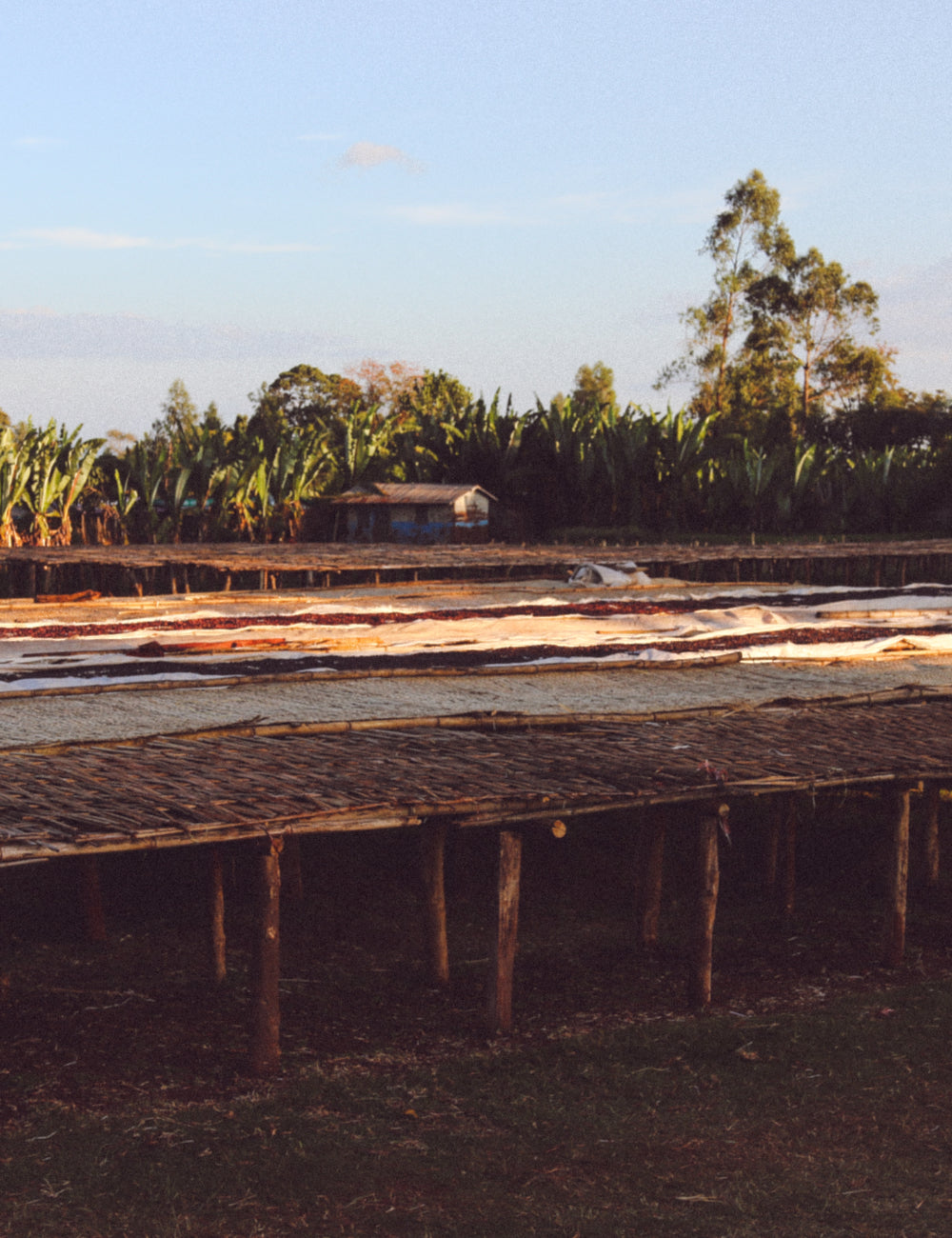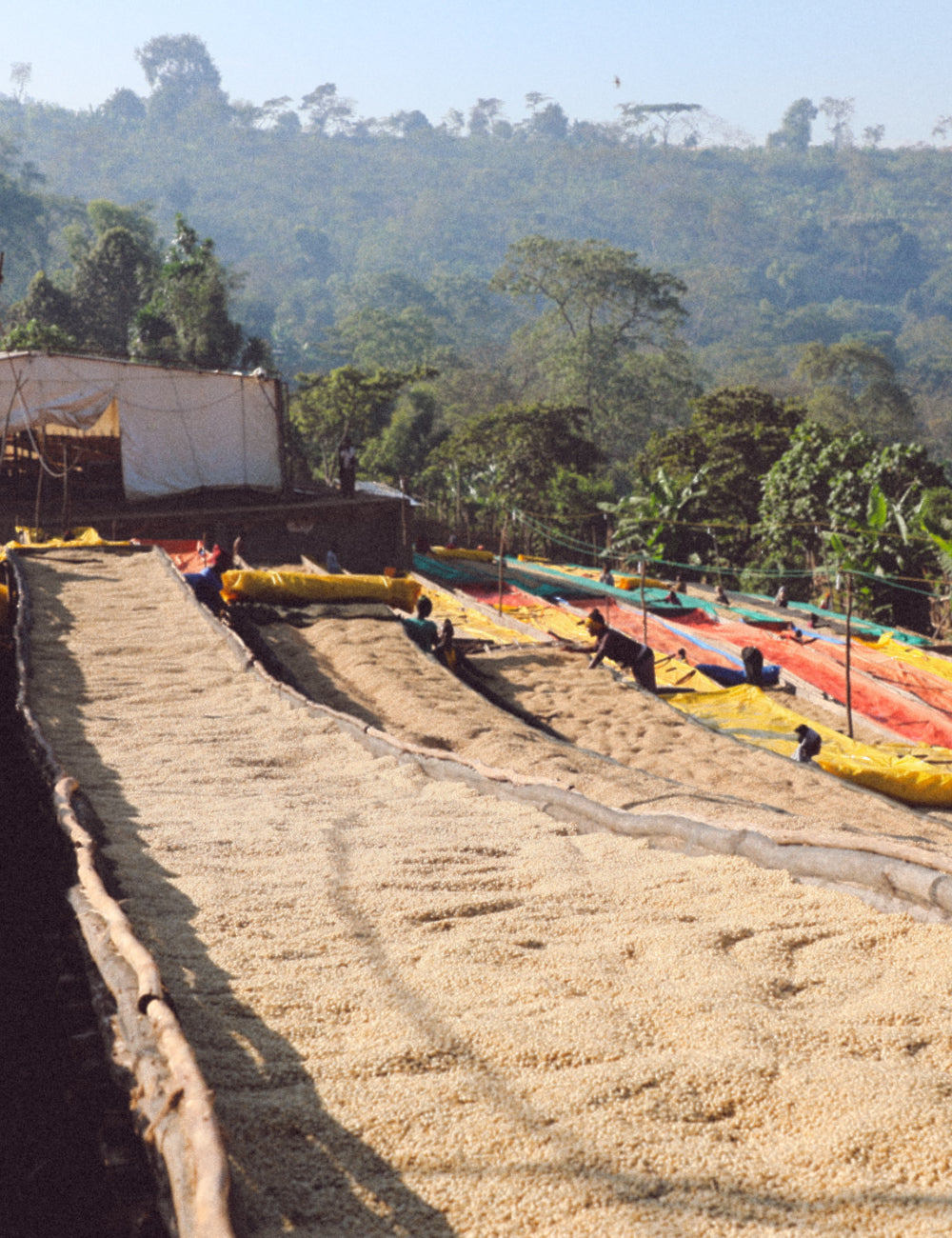Michicha
Michicha
A fine example of the Ethiopian profile, grown by local farmers using a unique wine process: raspberry sweetness & a cream finish.
Regular price
£14.75
Regular price
Sale price
£14.75
Unit price
per
Character
Character
We taste raspberry, lemon zest and cream.
Brewing
Brewing
Recommended for espresso and filter.
Resting
Resting
We recommend resting our coffee inside its sealed bag for a minimum of 21 days to enjoy the best results.
Couldn't load pickup availability


Dedicated local farmers.

The Producer

